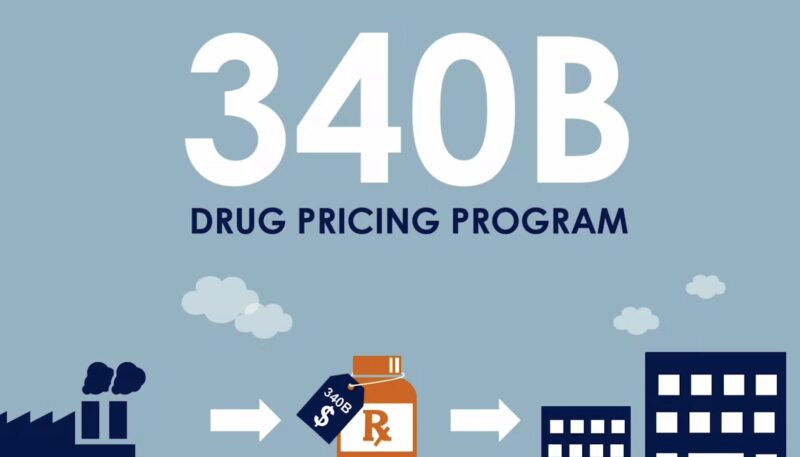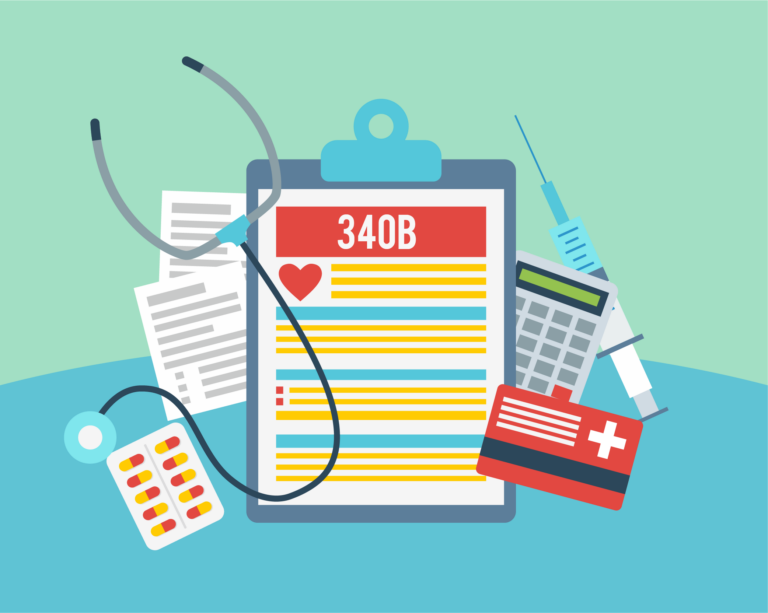In its December 2019 monthly update of the 340B Drug Pricing Program, the Health Resources & Services Administration (HRSA) clarified its position on covered entities sharing 340B IDs and drug inventories. The clarification opened the door to questions of why covered entities might want to share IDs. Unfortunately for them, sharing IDs is not allowed without a special exemption from HRSA.
340B ID Basics

Under the 340B Drug Pricing Program, disproportionate share hospitals and a few other types of healthcare providers can purchase deeply discounted outpatient drugs directly from manufacturers. The savings they enjoy through 340B allows them to stretch the federal funds they receive further.
Each covered entity is assigned a unique 340B ID upon acceptance to the program. The ID is a 5-digit number that is separate and distinct from the institutions DEA and Tax Identification numbers. The number is supplied as proof of eligibility whenever a covered entity purchases discounted drugs under the program.
Pharmaceutical companies can, and do, verify 340B IDs to ensure they are not selling discounted drugs to ineligible buyers. This is where the recent HRSA clarification comes in. The clarification is necessary to ensure that covered entities are not helping ineligible organizations purchase discounted drugs.
Each Entity Is Separate
Under the 340B statute, each covered entity eligible to receive discounted drugs is a separate entity with its own unique 340B ID – even if a facility is little more than a satellite of a larger covered entity. For example, let us say a local hospital opens a satellite location across town. That location can be registered as a covered entity. It would get its own unique ID and, for purposes of administration, be considered a separate entity by HRSA.
Unless there is a compelling reason to do things differently, that satellite entity cannot share the hospital’s 340B ID. It also cannot share the hospital’s drug inventory. It must purchase its own drugs using its unique ID.
HRSA Can Make Exceptions
It turns out that HRSA can make exceptions to the 1 entity-1 ID rule when circumstances warrant. But exceptions are not granted lightly. And in fact, covered entities need to put together a strong pitch supported by ample documentation. HRSA officials will review the materials and make a decision accordingly.
Entities wishing to share IDs and inventories will usually bring in a 340B consulting agency like Ravin Consultants to help them make the case for doing so. As 340B experts, such consulting firms are well positioned to make a very strong case.
Necessary for Proper Tracking

HRSA maintains that unique 340B IDs are necessary for proper tracking. They say that without the ID numbers, it is nearly impossible to know who has access to discounted drugs and who does not. Possessing a unique 340B ID is evidence that a covered entity is authorized to purchase the drugs at discounted prices.
Regulators also use the IDs to track program participation and compliance, and to better understand exactly which drugs are being purchased along with prices and volume. This particular aspect of tracking is necessary because HRSA tends to modify pricing structures on an annual basis. They need to be able to track the program accurately to make those adjustments.
340B IDs serve the same purpose under the Drug Pricing Program as Tax Identification Numbers serve for tax collection purposes. They are not going away. Furthermore, HRSA is unlikely to grant blanket approval for sharing IDs among entities that happen to be owned by the same healthcare group. All requests for ID or inventory shearing will continue to be addressed on a case-by-case basis.

